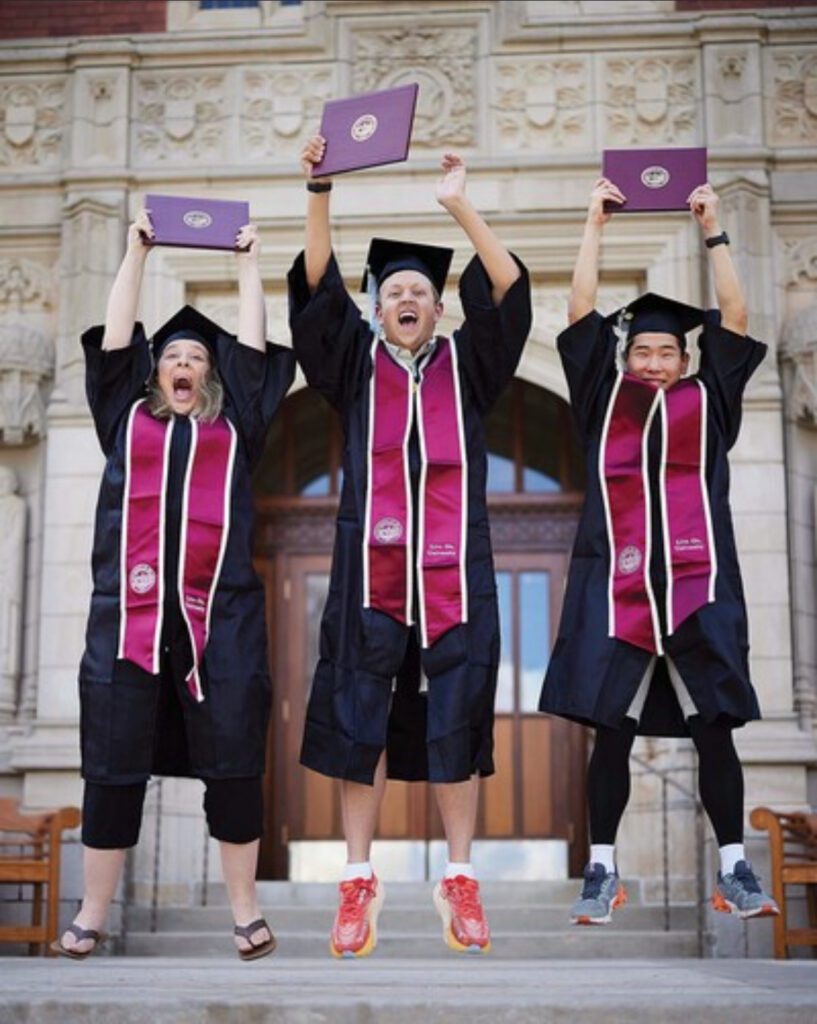In the clouds
a college girl's guide
At the University of Oklahoma, Sooner Works fosters inclusivity by offering students with intellectual and developmental disabilities a comprehensive four-year college experience. Established in 2019, the program integrates participants into campus life through a combination of standard coursework, specialized classes, job placements, and social activities.
Despite its strong track record and meaningful impact, Sooner Works lacks consistent financial backing from the university and relies entirely on private donations and program fees.
Senior Program Assistant, Aubrey Walley, addresses the importance of parental funding and the outreach that takes place through platforms.
“A big part of funding does come from the parents of the students themselves. We also try to get as much outreach through social media as possible,” says Walley, “This year we have encountered people not being the nicest to our students, and every time our students take the situation with so much love.”

Photo From OU SoonerWorks Instagram
The goal of Sooner Works is to fully include students with intellectual and developmental disabilities in college life. Aiming to build independence and prepare students for competitive employment, the program allows participants to live on campus, take standard courses alongside peers, and receive individualized support.
Graduates earn a certificate in Integrated Community Studies, equipping them with the skills needed for meaningful participation in society.
“The University has been more open to accommodations, but it is still tricky to figure out the line between what is considered a part of the college and what belongs strictly to Sooner Works,” says Aubrey.
Students are encouraged to participate in internships and campus organizations, similar to their neurotypical peers. The comprehensive strategy ensures that students remain educated and socially connected, which is vital to their fulfillment after college.
Current student Grace Lieck says the program makes her feel supported and has helped her grow. “I just feel loved here, and I have learned to be more independent,” she says.
The University of Oklahoma does not fund Sooner Works, contrary to many other university initiatives. Instead, it is self-funded through donations and program fees provided by participants.
Housing, tuition, meals, and the program fee total approximately $32,000 per year for residents of Oklahoma. The projected yearly expenditure for non-residents is around $41,000.
There are numerous issues with this financial model. Many families find the program’s reliance on participant fees to be very limiting. Institutional funding is hindering the growth potential.
Sooner Works head Anna Barritt explains the vulnerability that her job carries as they are always working towards bringing more attention to the initiative.

Photo Taken from OU SoonerWorks Instagram
“We try to be as transparent as possible with anyone wanting to join the program. I also choose to keep around 10 students per year in the program, so there is very much of rise or depletion in funding,” says Barritt.
Sooner Works actively looks for additional funding to lessen financial strains and enhance its program offerings. A $5,000 grant from Autism Speaks was awarded to the program in 2021 with the objective of giving students greater recreational options. Although helpful, grants such as these are narrowly targeted and do not address the program’s greater funding demands.
The program recognizes the importance of sustained support and encourages donations from both individuals and organizations.
Recent legislative initiatives in Oklahoma have given this project some hope. In early 2024, two bills that recommended full tuition scholarships for students with intellectual disabilities were approved by a unanimous vote.
Tuition at public in-state universities that provide extensive transition programs may be covered by the grants.
Such legislation, if passed, could greatly decrease the financial burden on families and enable a wider range of people. However, financial issues manage themselves until such steps are taken.
“Sooner Works has given me a place that feels like I do have time to make room for things that I care about in my life,” says Peer Partner Kinley Broeker.
Despite financial constraints, the program’s leadership is firm in its commitment to its goal of providing the best education possible to its students.
As an example of power in inclusive education, students with IDD have the opportunity to flourish in a college environment. The program’s financial model has major shortcomings despite its appearance of achievement.
Some students may not be able to take part as outside donations and the expenses of participation must be addressed due to the absence of university funding.
The longevity and accessibility rely on ongoing efforts to obtain sustainable funding, which will enable it to keep having a significant impact on the lives of its students. Sooner Works is at a critical juncture, where advocacy and inclusion must come together to shape the future of higher education for all people as legislative support and awareness grow.
In the end, the question remains: should efforts that promote equity and strengthen marginalized populations be allowed to support themselves?
The response received will impact not just Sooner Works’ future but also the principles that colleges and universities hold significance.
